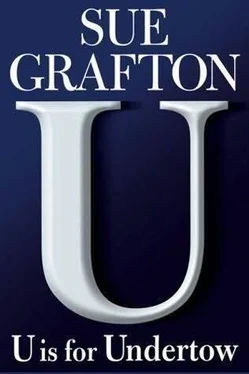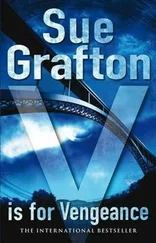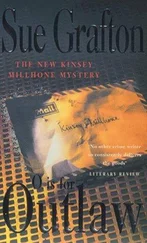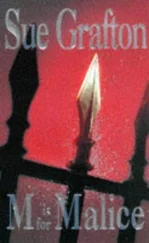When Fletcher was two, Carolyn went back into high gear. The process was simpler that time since many of the same approvals were in place. Linnie came to them by way of a local adoption attorney who’d been chatting with Carolyn at a Christmas party. The bio-mom, unmarried and eight and a half months pregnant, had come into his office the week before. The baby’s father refused to marry her, she’d lost her job, and her parents had kicked her out of the house. Would the McNallys be interested? There was no discussion at all. The birth mom moved into the McNally’s guest room for the final weeks before the birth. Carolyn and Walker were both present in the delivery room when Linnie was born.
When his second drink was gone, he went back to the kitchen and fixed himself a short one. His tension had dimmed and the knot of anxiety in his gut was all but gone. He noticed that eight months of good behavior had boosted the effects of the booze. He loved the sensation. He couldn’t help himself. Alcohol gave him access to his feelings. He experienced an extraordinary appreciation of his wife, his children, and the life he lived. Ordinarily, he held his emotions in check. He lived in a state of detachment, a stance he’d developed years before as a matter of self-preservation. He was present in his head but his sentimental side was seldom given free rein. It was in quiet moments like these that he let down his guard.
Walker still teared up on occasion watching his two little ones who resembled Carolyn closely enough to be mistaken for her “real” kids instead of the miraculous blessings they were. Where his love for his wife was constant, his devotion to his children overrode everything. Through them he’d been made vulnerable. His heart had opened to them in wholly unexpected ways. He’d been surprised by the depth and tenderness of his feelings because his soft side was in evidence nowhere else. The loss of either child would be a blow he could never recover from. His only prayer, on the rare occasions when he prayed, was that Fletcher and Linnie would be protected from evil and violence, spared illness and injury, disease and death. No one knew better than he did how fragile life was.
At 7:00 he called in an order for a large pizza with onions, jalapeños, and anchovies, a combination that would have made Carolyn shudder. The guy on the phone said it would be thirty minutes, which was fine with him. He changed into sweats and slippers and then went into the den where he unfolded a TV tray and set it with a paper napkin, a dinner plate, and silverware. When the pizza arrived, he’d make himself a proper drink that he’d nurse while he ate. He pictured an early evening, maybe reading in bed before he turned out the light. All he had to do was hang tight and act like everything was fine.
Friday, April 8, 1988
I skipped my run the next morning and went into the office early. I knew a three-mile jog would wipe out the lingering sense of melancholy I felt, but sometimes when you’re down in the dark, you lose the will to come up. The mood would pass as the day wore on. In some ways, I was sorry I’d seen the black-and-white photograph of Mary Claire. In that brief glimpse, I’d seen the mischief in her face and the light in her eyes. Before that moment, she’d been little more than a concept, Mary Claire Fitzhugh who’d vanished from the face of the earth. Now her life had touched mine and her fate had left a mark as delicate and distinct as a fingerprint.
I made a note in Michael Sutton’s file and stuck it in the drawer, then went back to the rough draft of the report I’d begun writing two days before. I revised and polished and typed it into final form. I began work on the second report, knowing I’d have to take two or three runs at it. This part of the business always felt like high school to me, as if I had a term paper due and my final grade depended on it. I suffered so much performance anxiety at Santa Teresa High, it just about shut me down. Once Ben Byrd and Morley Shine had trained me and I was out on my own, I understood that the whole point of a client report was clarity, laying out the sequence of events in an orderly fashion with sufficient detail that a stranger reading the file years later could follow the course of an investigation. That, I could do. I’d even learned to enjoy the process, though it didn’t come easily.
I paid my bills and made the bank run, depositing a collection of miscellaneous checks that had accumulated during the week, plus the five hundred dollars Sutton had paid me, which I’d removed from my office safe. While I was out, I picked up a sandwich and chips at the deli near the bank. The sandwich was a wicked one that I allowed myself once a year: a thick layer of liverwurst, with mayonnaise and thinly sliced dill pickle on freshly baked sourdough. While I would never dream of slapping a big glistening liver between two slices of bread, liverwurst was close to heaven, the poor man’s pâté. I know organ meats play hell with my cholesterol levels, but I doubted the occasional indulgence would prove fatal. I was in the habit of eating so fast, maybe nothing would adhere. Halfway through the sandwich, I heard the outer office door open and close. I slid the sandwich, waxed paper and all, into my pencil drawer and wiped my mouth in haste.
When I looked up, Diana Alvarez was standing at my door. She wore a snug black turtleneck and a short preppy-looking pleated skirt over black tights. Her low-heeled patent-leather shoes had little brass buckles across the tops that were ever so pert. Her hair was pulled back in a ponytail, a style that magnified her dark brown eyes behind rimless glasses.
She said, “Mind if I sit down?”
“Be my guest.”
As she settled in the chair, she straightened her skirt under her to avoid wrinkling the fabric. Over one shoulder she had a small bag on a thin leather strap. I’m constitutionally incapable of toting anything that small. Hers probably contained her driver’s license, a tube of lipstick, her mad money, one credit card, and her little spiral-bound notebook with a pen stuck through the wire loops. I was hoping she had a tissue tucked in there somewhere for nasal emergencies.
“What’s on your mind?” I anticipated a few follow-up questions about the dig the day before. Maybe she’d apologize for being pushy and deceptive, traits I found attractive in myself but unappealing in her.
“We need to talk about Michael Sutton,” she said.
I went through an automatic sorting process, wondering:
1. How and what she knew about Michael Sutton;
2. Whether she was fishing to confirm my professional relationship with him; and
3. Whether I was still bound by ethical constraints now that our one-day business dealings had come to an end. What, if anything, was I at liberty to disclose?
“Where did that name come from?”
“Cheney Phillips told me he talked to Michael at the station and then referred him to you. I spotted Michael at the dig yesterday, and since you were at the scene as well, I’m assuming he hired you. Is that correct?” Even without her spiral notebook at hand, she was confirming the facts.
“Why not ask him?”
“I don’t want to talk to him.”
“Too bad. I don’t intend to conduct a conversation behind his back so there you have it.”
“We don’t have to behave like antagonists. I’m here to save you a few headaches…”
I opened my mouth to interrupt and she held up one hand.
“Just listen to me,” she said. “I didn’t realize what was going on until I saw his MG parked by the side of the road. I’d been sent to cover the story, so I waited like everyone else to see what they’d find. I assumed the police were operating on an anonymous tip and then it dawned on me Michael was involved.”
Читать дальше












